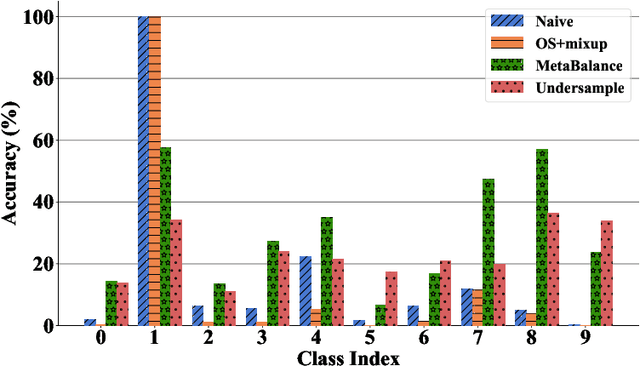MetaBalance: High-Performance Neural Networks for Class-Imbalanced Data
Paper and Code
Jun 17, 2021



Class-imbalanced data, in which some classes contain far more samples than others, is ubiquitous in real-world applications. Standard techniques for handling class-imbalance usually work by training on a re-weighted loss or on re-balanced data. Unfortunately, training overparameterized neural networks on such objectives causes rapid memorization of minority class data. To avoid this trap, we harness meta-learning, which uses both an ''outer-loop'' and an ''inner-loop'' loss, each of which may be balanced using different strategies. We evaluate our method, MetaBalance, on image classification, credit-card fraud detection, loan default prediction, and facial recognition tasks with severely imbalanced data, and we find that MetaBalance outperforms a wide array of popular re-sampling strategies.
 Add to Chrome
Add to Chrome Add to Firefox
Add to Firefox Add to Edge
Add to Edge